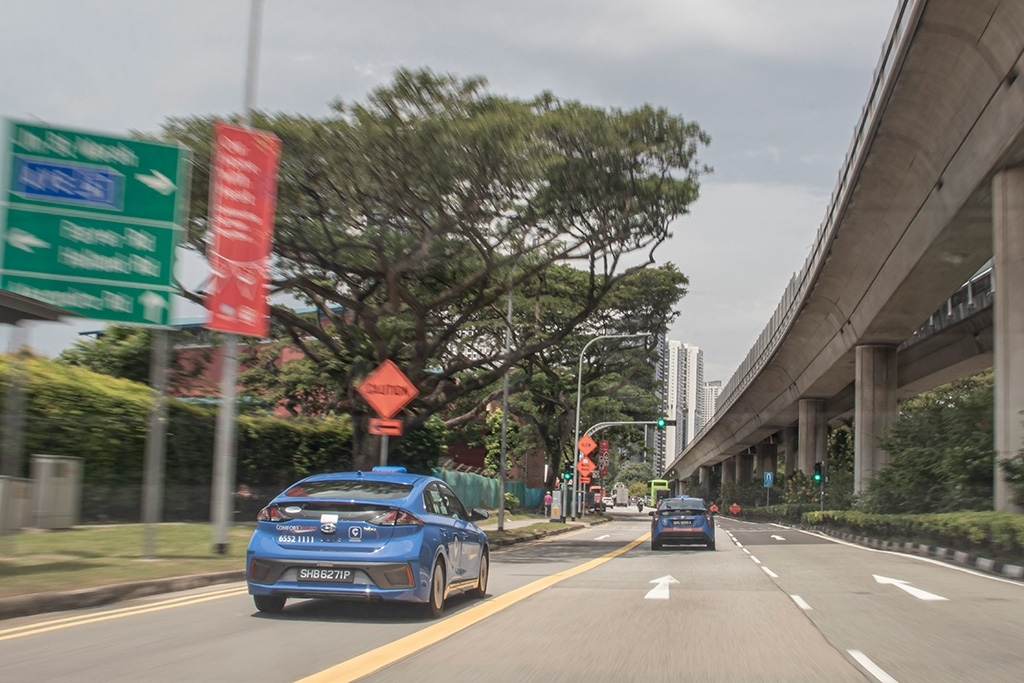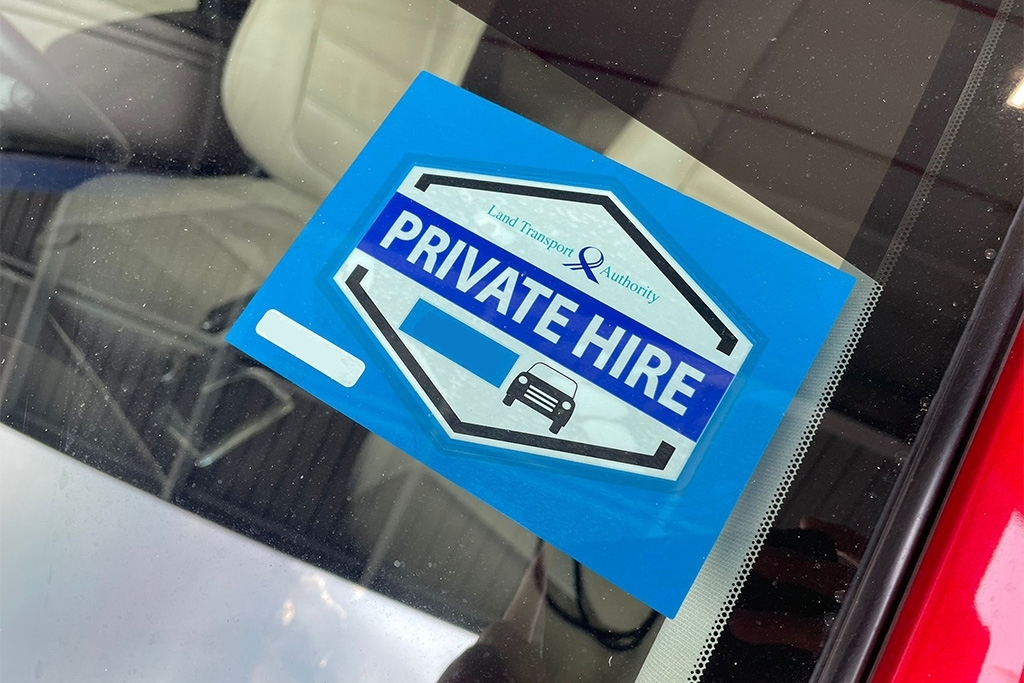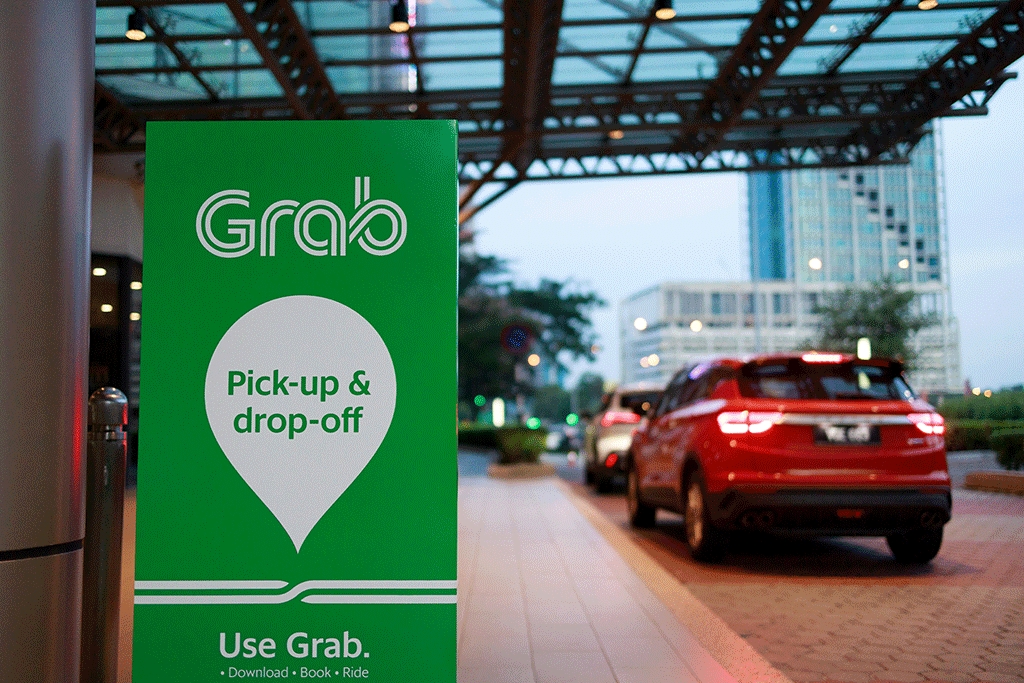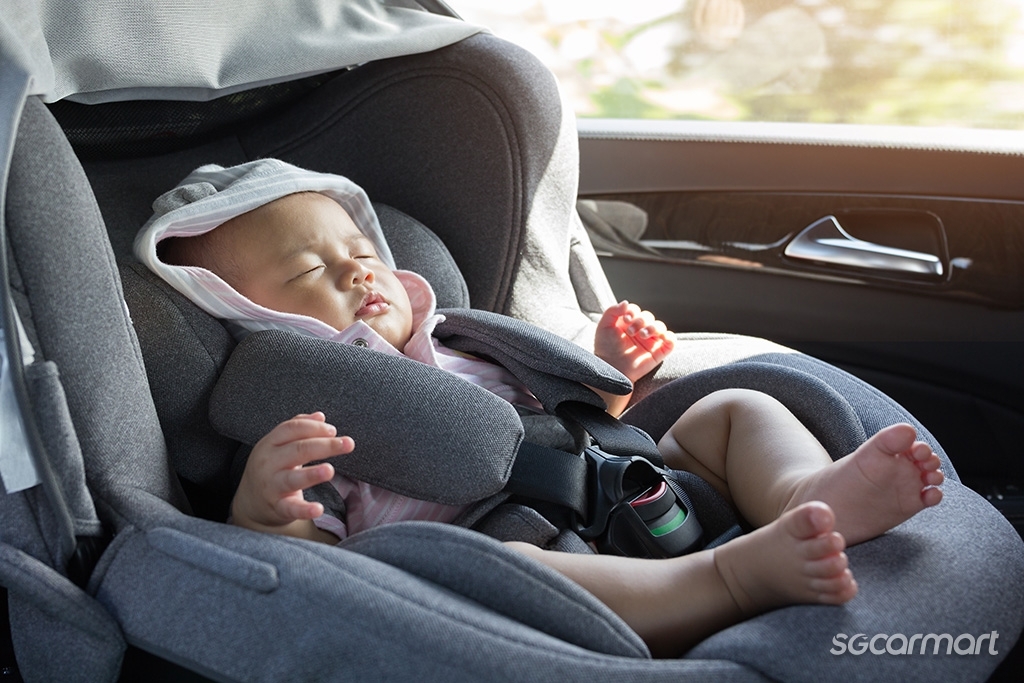P2P services to be more reliable and inclusive
06 Mar 2024|317 views
Concrete steps are being taken to make Point-to-Point (P2P) services - comprising taxis and Private Hire Vehicles (PHVs) - more readily available and reliable.
A slew of measures affecting ride-hailing and street-hailing services were announced at the Ministry of Transport's Committee of Supply (COS) Debate 2024, which sat in the parliament yesterday (5 March 2024).
These measures stem from the ongoing review of the Point-to-Point Transport industry structure and regulatory framework. The framework governs the way established taxi and ride-hail service providers conduct their business activities so as to safeguard commuter and driver interests.
The Land Transport Authority (LTA) said it has been engaging various stakeholders as part of the review, and will "make several changes to address key areas of feedback received" thus far.
Of these stakeholders include commuters, taxi and private hire car (PHC) drivers, and transport academics. LTA also involved tripartite partners such as taxi and ride-hail operators, the National Taxi Association, and the National Private Hire Vehicles Association, in the conversations.
Ensuring continuous supply of 'roadworthy' taxis and PHCs
In view of the dwindling number of street-hails released by LTA in February 2024, the authority will update the regulations for taxis and PHCs to ensure street-hail services, which are provided only by taxis, continue to remain accessible to all commuters.
This includes seniors who may be less familiar with using ride-hailing apps, tourists, and commuters at locations with very high concentration of demand (e.g. airports, ferry terminals, large-scale events).
According to LTA, the number of taxis plying the streets today is almost half of that from a decade ago. It attributed this decline to the "higher regulatory requirements for taxis compared to PHCs", which translate to higher operating costs for taxi operators and vehicle rental rates for taxi drivers.
|
Updated measure |
What this means |
| Statutory lifespan of diesel, petrol and hybrid taxis will be extended to 10 years, up from the current eight years. |
This will allow taxi operators to recover the cost of the vehicle over a longer period. The FIPR is tracked monthly and refers to the percentage of vehicles that pass their vehicle inspection on the first attempt in that month. |
| Taxis less than three years old will be inspected only once a year instead of once every six months. | This will minimise operational downtime for newer taxis, which also have high FIPR (at 99.8%), while still ensuring they are fit for use on the road. |
| Chauffeured PHCs - which refer to PHCs that may be used for personal or social purposes – that are more than 10 years old will be inspected once every six months, up from once a year. |
The higher inspection frequency ensures that older PHCs can continue to provide safe and reliable P2P services for commuters. |
| Smaller taxi operators will no longer be required to provide call-booking services. |
Currently, only 1% of all P2P trips are made via call-booking. |
LTA said it will work with taxi operators to ensure the cost savings, after accounting for additional maintenance expenses due to the increased statutory lifespan, are passed on to taxi drivers.
The Taxi Driver's Vocational Licence (TDVL) training curriculum will also be streamlined to lower the effort and cost needed to obtain this licence, added LTA. This is to encourage more prospective P2P drivers to consider obtaining a TDVL as it will allow them to drive either a taxi or a PHC.
Minimising P2P service disruptions
Given the high reliance on P2P services today for commuting and livelihoods, LTA will put in place two sets of measures to minimise the impact of disruptions. These will go towards addressing the availability of the ride-hail platform, and operators exiting the market.
Firstly, standards will be introduced for the management of operational disruptions for all taxi and ride-hail operators.
If a systemic incident that could impair P2P services happens, for instance, operators must inform LTA, commuters and drivers within an hour of confirmation of the incident. Operators should submit an incident report outlining measures it took to resolve the incident.
The standards also require ride-hail operators to develop and regularly review their contingency plans. These will include necessary operating protocols and system enhancements to ensure timely service recovery and mitigate recurrence of any systemic incidents.
Secondly, if an operator intends to cease its business, it must provide LTA with a market exit plan and a minimum notice of 120 calendar days - double the current notice period of 60 calendar days.
The operator must also inform commuters and drivers of their intention to cease its operations at least 60 calendar days prior to the date it surrenders its business licence. This is to ensure drivers and commuters have sufficient time to cash out their electronic wallets and transit to alternative platforms.
More inclusive ride-hailing services
Steps to make ride-hail services more inclusive, such as for wheelchair users and children requiring a child seat, were also discussed during the COS debate.
Unlike taxis, PHCs are not statutorily required to have sufficient boot space for a foldable wheelchair. This has limited some wheelchair users from leveraging ride-hailing to move around.
Some parents with children who are below 1.35 metres in height, may not be aware of the requirement for their children to be secured in a child seat while travelling in a PHC. This has given rise to situations where parents book the wrong service or omit to indicate that they require a child seat.
LTA said it will work with operators to make it easier for commuters to indicate if they need a vehicle that can accommodate a foldable wheelchair, or is equipped with a child seat.
If a matched PHC is unable to accommodate a foldable wheelchair or does not come with a child seat, the commuter will also be informed, said LTA. This is so that a commuter who has forgotten to indicate his or her need or booked the wrong service, can cancel and make a new booking within the grace period.
LTA added that it will work with the ride-hail operators to allow drivers to cancel the booking without incurring a penalty if commuters fail to indicate that they require boot space for a foldable wheelchair or a child seat. This will improve the matching of commuters to the correct service or vehicle, and help to avoid disputes between commuters and drivers.
Ongoing review expected to conclude in second half of 2024
Recognising that the proposed changes will require shake-ups to operational plans and services, LTA said it will provide further details on the implementation date of these regulatory changes and measures at a later stage.
LTA will continue to engage industry stakeholders on other ways to improve the overall stability and adequacy of P2P supply to meet evolving commuter needs, as part of the ongoing regulatory framework review. It said it expects to complete the review by the second half of 2024.
Concrete steps are being taken to make Point-to-Point (P2P) services - comprising taxis and Private Hire Vehicles (PHVs) - more readily available and reliable.
A slew of measures affecting ride-hailing and street-hailing services were announced at the Ministry of Transport's Committee of Supply (COS) Debate 2024, which sat in the parliament yesterday (5 March 2024).
These measures stem from the ongoing review of the Point-to-Point Transport industry structure and regulatory framework. The framework governs the way established taxi and ride-hail service providers conduct their business activities so as to safeguard commuter and driver interests.
The Land Transport Authority (LTA) said it has been engaging various stakeholders as part of the review, and will "make several changes to address key areas of feedback received" thus far.
Of these stakeholders include commuters, taxi and private hire car (PHC) drivers, and transport academics. LTA also involved tripartite partners such as taxi and ride-hail operators, the National Taxi Association, and the National Private Hire Vehicles Association, in the conversations.
Ensuring continuous supply of 'roadworthy' taxis and PHCs
In view of the dwindling number of street-hails released by LTA in February 2024, the authority will update the regulations for taxis and PHCs to ensure street-hail services, which are provided only by taxis, continue to remain accessible to all commuters.
This includes seniors who may be less familiar with using ride-hailing apps, tourists, and commuters at locations with very high concentration of demand (e.g. airports, ferry terminals, large-scale events).
According to LTA, the number of taxis plying the streets today is almost half of that from a decade ago. It attributed this decline to the "higher regulatory requirements for taxis compared to PHCs", which translate to higher operating costs for taxi operators and vehicle rental rates for taxi drivers.
|
Updated measure |
What this means |
| Statutory lifespan of diesel, petrol and hybrid taxis will be extended to 10 years, up from the current eight years. |
This will allow taxi operators to recover the cost of the vehicle over a longer period. The FIPR is tracked monthly and refers to the percentage of vehicles that pass their vehicle inspection on the first attempt in that month. |
| Taxis less than three years old will be inspected only once a year instead of once every six months. | This will minimise operational downtime for newer taxis, which also have high FIPR (at 99.8%), while still ensuring they are fit for use on the road. |
| Chauffeured PHCs - which refer to PHCs that may be used for personal or social purposes – that are more than 10 years old will be inspected once every six months, up from once a year. |
The higher inspection frequency ensures that older PHCs can continue to provide safe and reliable P2P services for commuters. |
| Smaller taxi operators will no longer be required to provide call-booking services. |
Currently, only 1% of all P2P trips are made via call-booking. |
LTA said it will work with taxi operators to ensure the cost savings, after accounting for additional maintenance expenses due to the increased statutory lifespan, are passed on to taxi drivers.
The Taxi Driver's Vocational Licence (TDVL) training curriculum will also be streamlined to lower the effort and cost needed to obtain this licence, added LTA. This is to encourage more prospective P2P drivers to consider obtaining a TDVL as it will allow them to drive either a taxi or a PHC.
Minimising P2P service disruptions
Given the high reliance on P2P services today for commuting and livelihoods, LTA will put in place two sets of measures to minimise the impact of disruptions. These will go towards addressing the availability of the ride-hail platform, and operators exiting the market.
Firstly, standards will be introduced for the management of operational disruptions for all taxi and ride-hail operators.
If a systemic incident that could impair P2P services happens, for instance, operators must inform LTA, commuters and drivers within an hour of confirmation of the incident. Operators should submit an incident report outlining measures it took to resolve the incident.
The standards also require ride-hail operators to develop and regularly review their contingency plans. These will include necessary operating protocols and system enhancements to ensure timely service recovery and mitigate recurrence of any systemic incidents.
Secondly, if an operator intends to cease its business, it must provide LTA with a market exit plan and a minimum notice of 120 calendar days - double the current notice period of 60 calendar days.
The operator must also inform commuters and drivers of their intention to cease its operations at least 60 calendar days prior to the date it surrenders its business licence. This is to ensure drivers and commuters have sufficient time to cash out their electronic wallets and transit to alternative platforms.
More inclusive ride-hailing services
Steps to make ride-hail services more inclusive, such as for wheelchair users and children requiring a child seat, were also discussed during the COS debate.
Unlike taxis, PHCs are not statutorily required to have sufficient boot space for a foldable wheelchair. This has limited some wheelchair users from leveraging ride-hailing to move around.
Some parents with children who are below 1.35 metres in height, may not be aware of the requirement for their children to be secured in a child seat while travelling in a PHC. This has given rise to situations where parents book the wrong service or omit to indicate that they require a child seat.
LTA said it will work with operators to make it easier for commuters to indicate if they need a vehicle that can accommodate a foldable wheelchair, or is equipped with a child seat.
If a matched PHC is unable to accommodate a foldable wheelchair or does not come with a child seat, the commuter will also be informed, said LTA. This is so that a commuter who has forgotten to indicate his or her need or booked the wrong service, can cancel and make a new booking within the grace period.
LTA added that it will work with the ride-hail operators to allow drivers to cancel the booking without incurring a penalty if commuters fail to indicate that they require boot space for a foldable wheelchair or a child seat. This will improve the matching of commuters to the correct service or vehicle, and help to avoid disputes between commuters and drivers.
Ongoing review expected to conclude in second half of 2024
Recognising that the proposed changes will require shake-ups to operational plans and services, LTA said it will provide further details on the implementation date of these regulatory changes and measures at a later stage.
LTA will continue to engage industry stakeholders on other ways to improve the overall stability and adequacy of P2P supply to meet evolving commuter needs, as part of the ongoing regulatory framework review. It said it expects to complete the review by the second half of 2024.
Latest COE Prices
April 2025 | 2nd BIDDING
NEXT TENDER: 07 May 2025
CAT A$99,500
CAT B$117,003
CAT C$65,001
CAT E$118,001
View Full Results Thank You For Your Subscription.




































